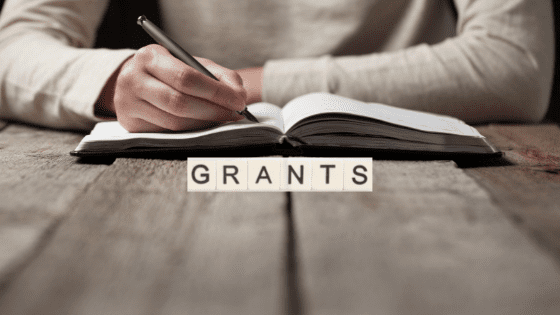
By Riley Randolph
Contrary to popular belief, I didn’t wake up on a cold November morning during my undergrad and realize that I wanted to be a grant writer. I come from the land of Communications and Marketing, but the fulfilling nature of grant writing drew me in with ease. So now that I’ve been writing proposals for years, here are a few tips for novice grant writers that I wish I knew when I started!
- Grant writing is a marathon, not a sprint!
As humans, we have a natural urge for things to happen instantly. However, that is not how the grant writing process works. Yes, some applications may only take half an hour to prepare, but you must look at the big picture. For example, you have the research that allows you to find the opportunity, the discussion about the grant that may need to take place with your Executive Director, Board or program staff, creation of the grant template (see number 3 if you’d like to keep your sanity), writing the grant, submission, the waiting game, and the finale: Make sure everyone involved in the grant writing process understands that grants do not come to fruition overnight. Patience is a virtue!
- A “No” isn’t a never, it’s a “not right now”
Don’t be discouraged by a decline! This is not the end, because by submitting your application, the foundation now knows more about your organization and its programs. Use this to jumpstart your relationship with the foundation. Some funders are willing to discuss your application and provide feedback, which allows you to improve your application the next year. In our office, we do not use the terms “Not Funded” or “Declined;” we like to use “Try Again” because it is only the beginning!
- Make a grant template – DO NOT write in the portal
Unless you thoroughly enjoy re-constructing tons of work, I strongly recommend creating grant templates or outlines for every grant you are working on. I find it helpful to pull every single question from the grant portal, even if it is something simple like the organization’s address. You never know what will happen when working in grant portals. Most portals have a time limit in which they will appear to still be open, but they log you out and your work isn’t saved. Whether you have spent minutes or months writing a grant, save and save often!
- Set up a tracking method for research, writing, submissions, and awards
If you take anything from this post, please consider tracking everything! At times, grant writing can be confusing, especially if the funder’s grant cycle doesn’t align with your fiscal year. Crossing over multiple fiscal years can create difficulties in tracking your grant information, so I recommend creating a spreadsheet, developing a database, or utilizing a platform such as DonorPerfect to track the progress of your grants. More is more! Don’t be afraid to hoard information when it comes to tracking your grants. Some examples of information to store are as follows: deadline, submission date, an indication of when you will receive a response, award/decline, and any follow-up with the funder. - Research is more fun if you treat it like a scavenger hunt
- Whether you are looking for new opportunities or vetting grants you have already identified, research is a requirement. Although you must do research, that doesn’t mean it has to be tedious. When I conduct research for our clients, I like to first determine what kind of opportunities I am looking for. For example, if my client’s funding priority is their summer STEM camp, I would look for funders with similar interests. Once you have identified what you are looking for, you need to know where to look. There is a myriad of grant research tools that can be used to find new opportunities, but don’t use just one! I like to cross-reference my finds in different databases to ensure the information is accurate and comprehensive. Once you identify which funder is a good match for you, now comes the fun part: Super Sleuthing. You’d be surprised what a 990 form can tell you. Utilize GuideStar to review a foundation’s 990 to find out who they have funded, for how much, and when. If the funder has a website, it can be a wealth of information as well. If there is a contact person who can answer your questions, even better! The inside scoop is the most important part of grant research!
Now that I’ve given you my tricks of the trade, I’d love to hear from other grant writing professionals. Drop your helpful hints below!





